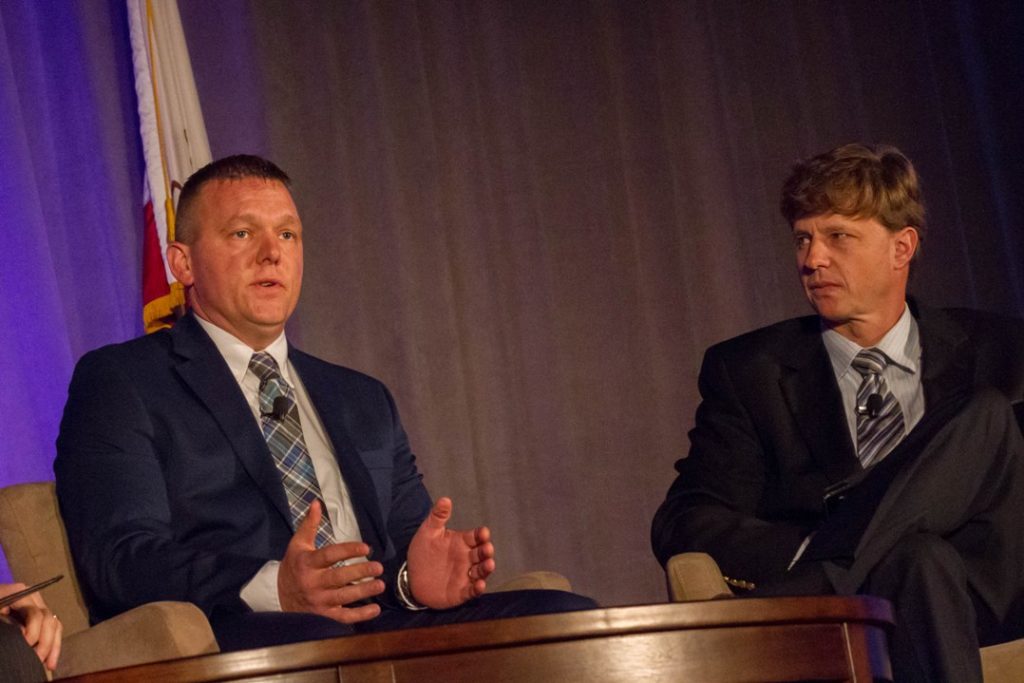
With an influx of natural gas development nipping at his co-op’s business, CEO Tim Thompson and officials at Lake Region Electric Cooperative decided standing pat was not an option.
The result: a partnership with Greater Minnesota Gas that will bring the fuel by late summer to rural communities in west-central Minnesota. Lake Region Electric is investing $1.6 million in an initiative that’s nontraditional, but well-received by its members.
“As we met with members, particularly large agricultural producers…we asked the question, ‘What do you think about the idea of your cooperative bringing natural gas to this region?’ ” Thompson said. “They very quickly said, ‘It was our electric cooperative that brought electricity to the countryside in the early days.’ ”
Though poles and wires are the heart of the electric delivery system, CEOs say today’s co-ops need to go beyond them to prosper in the face of third party power providers, internet schemers and other challenges.
“We’re in the relationship business. That can be risky, but it’s also an opportunity,” said Paul Spruill, general manager and CEO of Tideland EMC, Pantego, North Carolina.
At Tideland, building a member-centered co-op has meant pushing the boundary on the traditional mission of providing service by using technology to build relationships with members.
The co-op sits in the path of major weather disturbances—Hurricane Irene leveled its system in 2011—which Spruill said increases the role of a mobile app and social media strategy.
“The worst time for a co-op is during a disaster, but with our activity in reaching out and sharing burden with them in pictures and updates, we see peaks in social media [engagement],” he said.
“When the lights are out, we’re doing well from their point of view even if they don’t have electricity because we’re telling them what’s going on.”
Matt Deaton recognized things had to change not long after he became general manager and CEO of Orange County REMC, Orleans, Indiana, in 2015.
Within a few days, he spoke to a grateful lady who remembered the first time the lights came on in her house and another member who was fuming that his lights had flickered three times in 30 days, causing his computer to reboot.
“One member might go five or seven days into an outage and not even call. The other has a quite different view,” Deaton said.
“I realized that maybe just supplying electricity wasn’t quite where we needed to focus our attention. Maybe we needed to expand what we can offer our members and ensure that we’re well positioned into the future.”
At Orange County, that’s meant Facebook, a once-taboo subject at the co-op.
“Eighteen months in, we have about 40 percent of the membership following us on Facebook,” he said, including a reach of 43,000 people for an 8,000-meter co-op during one incident involving an apparent scam.
Each co-op must decide for itself how it will expand beyond wires and poles, the CEOs said during a forum at the NRECA annual meeting in San Diego.
But, as Thompson said, standing pat is not an option.
“Even if you’re looking at something different, it still fits in with the mission of the co-op,” he said. “For us, the gas project is consistent with our cooperative principles. It comes down to helping consumers increase productivity and lower costs.”
Video of the member-centric forum is available to registered users of cooperative.com.
Steven Johnson is a staff writer at NRECA.